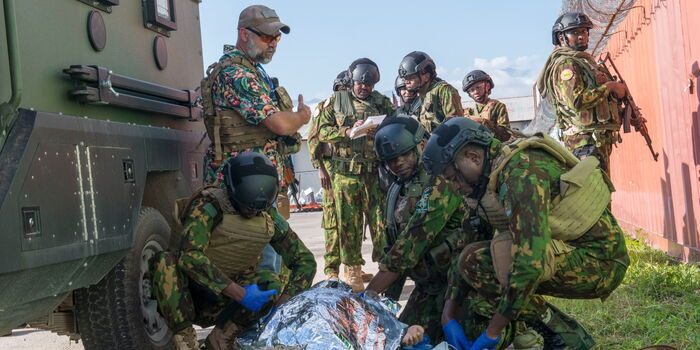Haiti has endorsed a U.S.-backed plan to restructure the Kenya-led Multinational Security Support (MSS) mission. The reforms could see leadership shift to another country while increasing troop levels to more than 5,000.
A “Decisive Step” for Security
Prime Minister Alix Dider Fils-Aimé’s office described the proposal as “a decisive step” toward restoring order. The government said it would help protect communities terrorized by armed gangs and boost national stability.
According to the Miami Herald, Haiti stressed that the reforms would also strengthen regional security.
“Haiti is convinced that the adoption and rapid implementation of this draft resolution will reflect the collective will of the international community to support the Haitian people in their legitimate aspiration for security, peace, dignity, and democracy,” the government said.
Growing Regional Support
Haiti’s endorsement adds weight to support already given by the Organization of American States (OAS) and the Caribbean Community (CARICOM). Both blocs want the mission’s mandate widened to include arrests, intelligence operations, and dismantling criminal networks.
OAS members also backed creating a U.N. Support Office for Haiti. Canada is among the latest countries to endorse the transition.
U.S. Push at the U.N.
The United States and Panama are leading talks at the U.N. Security Council. They want the current mission mandate—set to expire this month—expanded. The proposal mirrors earlier recommendations made by U.N. Secretary-General António Guterres.
However, the mission faces a major challenge: funding. Recent budget cuts to the U.N. by the Trump administration have raised doubts about whether the plan will succeed. The MSS depends on contributions from member states to operate.
Kenya’s Role
Kenya currently has around 1,000 police officers in Haiti. Plans to send more have stalled due to U.S. budget reductions.
Meanwhile, OAS members have pledged to support Haitian-led initiatives to address the root causes of violence. These include corruption, poverty, inequality, and weak democratic institutions.
The reforms, if adopted, could reshape international efforts to restore peace and stability in Haiti.

